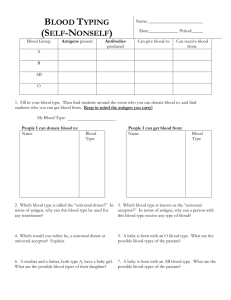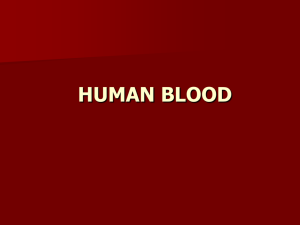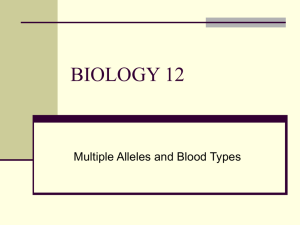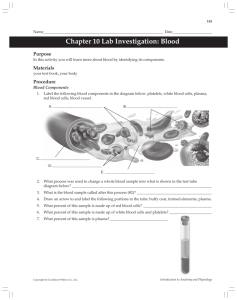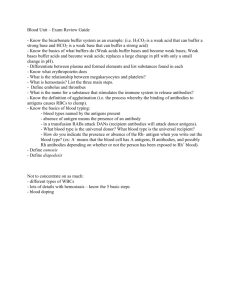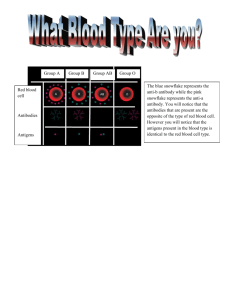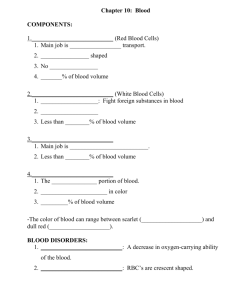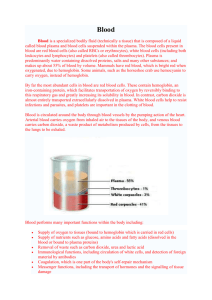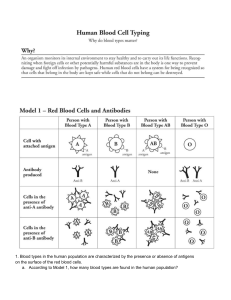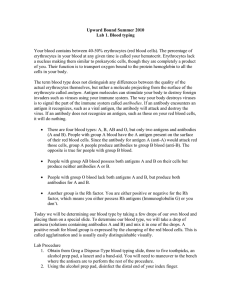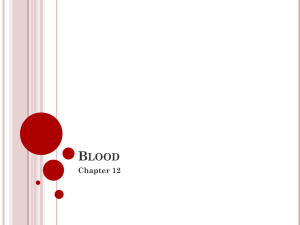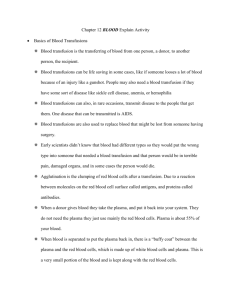unit3quiz - Ms-Martin
advertisement
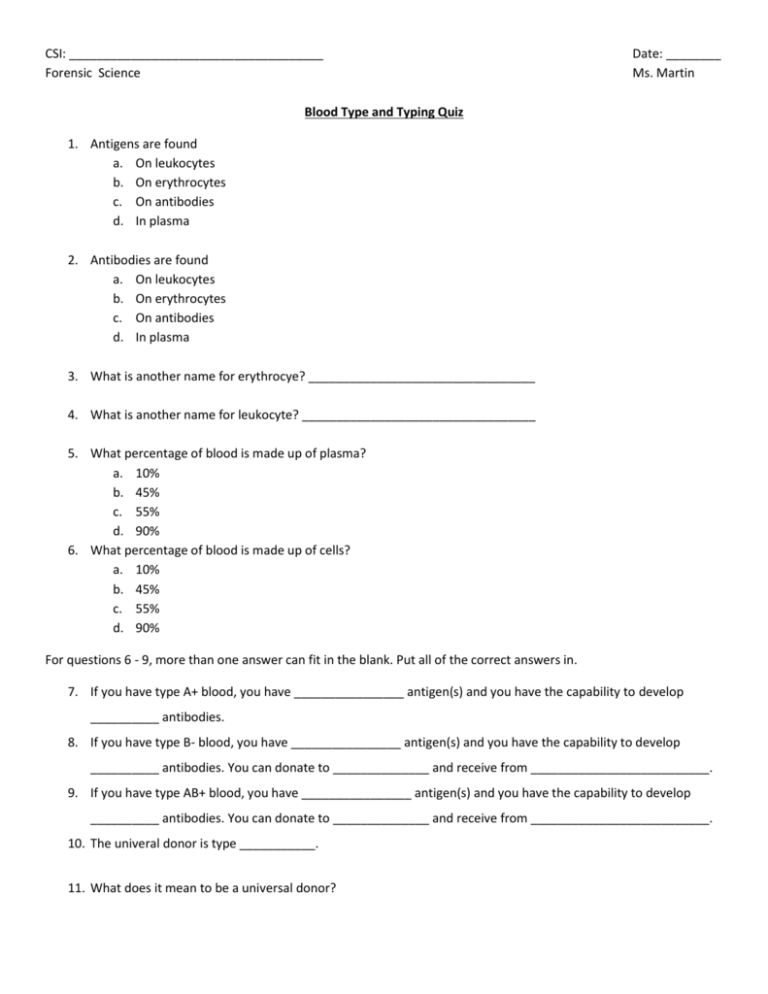
CSI: _____________________________________ Forensic Science Date: ________ Ms. Martin Blood Type and Typing Quiz 1. Antigens are found a. On leukocytes b. On erythrocytes c. On antibodies d. In plasma 2. Antibodies are found a. On leukocytes b. On erythrocytes c. On antibodies d. In plasma 3. What is another name for erythrocye? _________________________________ 4. What is another name for leukocyte? __________________________________ 5. What percentage of blood is made up of plasma? a. 10% b. 45% c. 55% d. 90% 6. What percentage of blood is made up of cells? a. 10% b. 45% c. 55% d. 90% For questions 6 - 9, more than one answer can fit in the blank. Put all of the correct answers in. 7. If you have type A+ blood, you have ________________ antigen(s) and you have the capability to develop __________ antibodies. 8. If you have type B- blood, you have ________________ antigen(s) and you have the capability to develop __________ antibodies. You can donate to ______________ and receive from __________________________. 9. If you have type AB+ blood, you have ________________ antigen(s) and you have the capability to develop __________ antibodies. You can donate to ______________ and receive from __________________________. 10. The univeral donor is type ___________. 11. What does it mean to be a universal donor? 12. The universal recipient is type _____________. 13. What does it mean to be a universal recipient? 14. What is the term that describes the interaction between antigens and antibodies? 15. Fill out the table for each blood typing procedure. Suspect 1 +/- for A antigen +/- for B antigen +/- for Rh antigen Blood Type 2 3 4 5 6 16. One samples of blood were found at a crime scene. The blood type was B-. Which one of the above suspects match the blood found at the scene? ___________ 17. Would you rather be have the universal donor type blood or universal receiver type blood? Why? 18. Draw a visual representation of A+ blood. Make sure to label your antigens.
